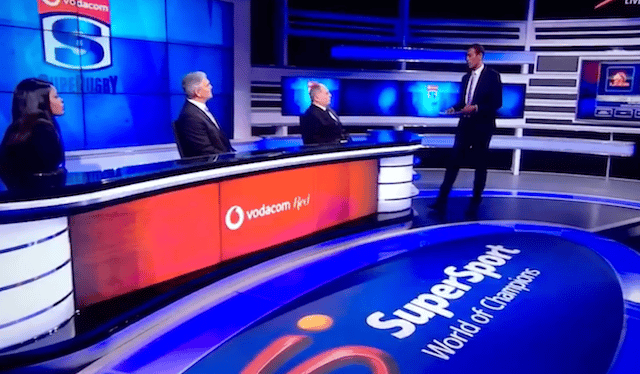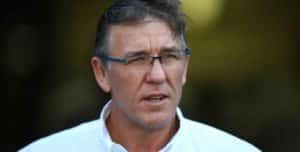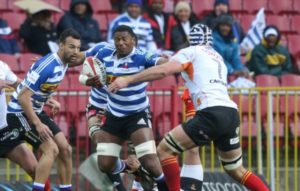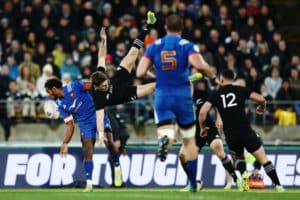Nick Mallett and Naas Botha will resume their studio duties in due course after it was found that there was no underlying racism that led to the on-air incident involving Ashwin Willemse on 19 May.
Willemse walked off the SuperSport set during a live discussion following the Lions’ Super Rugby win over the Brumbies, alleging that Mallett and Botha had ‘undermined’ and ‘patronised’ him.
The independent investigation, led by senior advocate Vincent Maleka, was initially due to end on 11 June, but was extended by a week to allow Willemse to testify.
However, Willemse failed to present his testimony for the second time, saying he believed this was ‘not the forum to voice his concerns’.
SuperSport said while it is disappointed that Willemse chose not to participate in the review process, it respects his right not to do so.
‘In the spirit of reconciliation, we will make another attempt to reach out to Ashwin for us to find a mutually-acceptable way forward so that he knows that this issue has been fairly investigated.’
Following his comprehensive investigation, Maleka found the following:
- That the conduct of Botha and Mallett during the off-air conversation with Willemse and during the live studio broadcast of the post-match commentary of the match ‘does not manifest naked racism and was not motivated by racist considerations’.
- Assisted by Professor Adam Habib (an expert with extensive experience in race relations and considered literature on subtleties of racist conduct), Maleka also found that there was also no evidence of Botha or Mallett exhibiting either intended or unintended subtle racism.
- The incident cannot be explained on the basis of the suggestion or suspicion that Willemse was, for the most part, not present in the studio when the second half of the rugby match was televised.
- There are two factors which provide a reasonable explanation for the incident. The first is the (mistaken) technical assumption that there was enough time for all the analysts to express their pre-match analysis or commentary of the Lions vs Brumbies match. However, the switch to the live broadcast happened sooner than anticipated. Consequently, there was no time for Willemse to express his views. The panel then agreed, off-air, that Willemse would be given the first opportunity to speak after the game. The second is that it is reasonable to assume that Willemse may have regarded the common stance adopted by Mallett and Botha as patronising when they insisted that he should thereafter speak first.
Maleka also made a number of recommendations, all of which will be implemented by SuperSport:
- A forum will be established for the team of analysts to provide their views on the performance of the analysts (and possible room for improvement) during that specific broadcast, after each studio broadcast.
- A code of conduct will be formulated for analysts including grievance procedures and credible mechanisms to resolve any grievances they may have.
- Analysts will be required to operate the touchscreen in the studio ‘across the colour-line’, even though the touchscreen is the more complex of the functions on set.
- Counselling will be offered to presenter Motshidisi Motshidisi, Botha, Mallett and Willemse due to the emotional suffering all have endured from and since the incident.
- SuperSport will take the additional step to refer the report to the SA Human Rights Commission. Given the content of the report, it is expected that Botha and Mallett will resume studio duties in the future, at a time to be determined by SuperSport.





